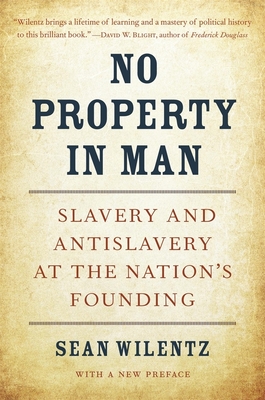Expedite your nonfiction book discovery process with Readara interviews, summaries and recommendations, Broaden your knowledge and gain insights from leading experts and scholars
In-depth, hour-long interviews with notable nonfiction authors, Gain new perspectives and ideas from the writer’s expertise and research, Valuable resource for readers and researchers
Optimize your book discovery process, Four-to eight-page summaries prepared by subject matter experts, Quickly review the book’s central messages and range of content
Books are handpicked covering a wide range of important categories and topics, Selected authors are subject experts, field professionals, or distinguished academics
Our editorial team includes books offering insights, unique views and researched-narratives in categories, Trade shows and book fairs, Book signings and in person author talks,Webinars and online events
Connect with editors and designers,Discover PR & marketing services providers, Source printers and related service providers

No Property in Man: Slavery and Antislavery at the Nation's Founding, with a New Preface
History > United States - Revolutionary Period (1775-1800)
- Harvard University Press
- Paperback
- 9780674241428
- 8.2 X 5.4 X 1 inches
- 0.75 pounds
- History > United States - Revolutionary Period (1775-1800)
- (Single Author) Asian American
- English
Readara.com
Book Description
Wilentz brings a lifetime of learning and a mastery of political history to this brilliant book.
--David W. Blight, author of Frederick Douglass
A New York Times Book Review Editors' Choice
A Foreign Affairs Best Book of the Year
Americans revere the Constitution even as they argue fiercely over its original toleration of slavery. In this essential reconsideration of the creation and legacy of our nation's founding document, Sean Wilentz reveals the tortured compromises that led the Founders to abide slavery without legitimizing it, a deliberate ambiguity that fractured the nation seventy years later. Contesting the Southern proslavery version of the Constitution, Abraham Lincoln and Frederick Douglass pointed to the framers' refusal to validate what they called property in man. No Property in Man has opened a fresh debate about the political and legal struggles over slavery that began during the Revolution and concluded with the Civil War. It drives straight to the heart of the single most contentious issue in all of American history.
Revealing and passionately argued... [Wilentz] insists that because the framers did not sanction slavery as a matter of principle, the antislavery legacy of the Constitution has been...'misconstrued' for over 200 years.
--Khalil Gibran Muhammad, New York Times
Wilentz's careful and insightful analysis helps us understand how Americans who hated slavery, such as Abraham Lincoln and Frederick Douglass, could come to see the Constitution as an ally in their struggle.
--Eric Foner
Author Bio
Sean Wilentz studies U.S. political and social history. He received his Ph.D. in history from Yale University (1980) after earning bachelor’s degrees from Columbia University (1972) and Balliol College, Oxford University (1974).
Chants Democratic (1984), which won several national prizes, including the Albert J. Beveridge Award of the American Historical Association, shows how the working class emerged in New York City and examines the changes in politics and political thought that came with it.
In The Kingdom of Matthias (1994), Professor Wilentz and coauthor Paul E. Johnson tell the story of a bizarre religious cult that sprang up in New York City in the 1830s, exploring in the process the darker corners of the 19th-century religious revival known as the Second Great Awakening. Professor Wilentz is also the coauthor and coeditor of The Key of Liberty (1993) and the editor of several other books, including The Rose and the Briar (2004, Greil Marcus coeditor), a collection of historical essays and artistic creations inspired by American ballads.
His The Rise of American Democracy: Jefferson to Lincoln (2005), was awarded the Bancroft Prize and was a finalist for the Pulitzer Prize. Subsequent books include The Age of Reagan: A History, 1974-2008, a reconsideration of U.S. politics since the Watergate affair; Bob Dylan in America, a consideration of Dylan's place in American cultural history; and The Politicians & The Egalitarians: The Hidden History of American Politics, a thematic collection of essays covering American political history from the Revolution through the 1960s.
His most recent study, No Property in Man: Slavery and Antislavery at the Nation’s Founding, based on his Nathan I. Huggins Lectures at Harvard, appeared in 2018 and was the recipient of the annual Thomas A. Cooley Book Prize for the best book on the Constitution, awarded by the Georgetown University Law Center. In 2020, the Library of America published the first of three projected volumes of his authoritative edition of the writings of the historian Richard Hofstadter.
Professor Wilentz has received numerous fellowships from, among other institutions, the John Simon Guggenheim Foundation, the American Council of Learned Societies, and the American Academy in Berlin. Formerly a contributing editor to The New Republic, and currently a member of the editorial boards of Dissent and Democracy, he lectures frequently and has contributed some four hundred articles, reviews, and op-ed pieces to publications such as the New York Review of Books, the New York Times, the Washington Post, the Los Angeles Times, The Atlantic, the London Review of Books, The American Scholar, The Nation, Le Monde, and Der Spiegel.
He has also given congressional testimony, notably before the House Judiciary Committee in 1998. His writings on American music have earned him two Grammy nominations and two Deems Taylor-ASCAP awards.
Source: Princeton University
Videos






Community reviews
No Community reviews

